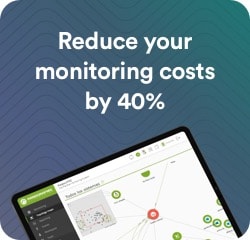Madrid, July 26, 2022.- The cities of the future will be closely linked to technology. Hence, administrations are increasingly taking their chances on investing in what is known as their digital structure. A whole system that collects thousands of data per minute and whose proper functioning depends on the efficiency in the provision of public services; so the management of this information becomes transcendentally important. With this in mind, the Community of Madrid has already managed to reduce its response time by 200% in citizen services through Madrid Digital’s monitoring.
Madrid Digital, the entity that is responsible for the digitization of the entire administration of Madrid’s region, uses a monitoring system developed by a Spanish company: Pandora FMS. The firm of technological solutions, which has become a reference in the sector even working for large Canadian hospitals or first-line companies such as Rakuten, is the one who achieves this solution that allows Madrid to improve collaboration with the population.
“Our system controls 500 servers and devices, and more than 120,000 metrics. Monitoring means that all the data that is generated goes through the same console, improving the accessibility of the operators and centralizing all the information”, explains Sancho Lerena, CEO of the Spanish company Pandora FMS. By controlling the metrics it is possible to measure the productivity of a system, which in turn means an improvement in service quality.
The monitoring system with which Madrid has strengthened its public services not only improves reaction and diagnosis time by 200%, but also frees up part of the workforce. That is, those workers who previously had to focus their attention on the managing the digital structure, can now focus on those purely human tasks to improve the management efficiency.
Monitoring all these data improves the ability of citizens to report errors in computer systems, but also that of the different administrations that make use of the digital structure of the region. That way, Madrid manages to accelerate the flow of information and, therefore, gain reaction time to solve any incident in its services.
This reaction rate has become one of the great keys of administrations. Especially in times of COVID-19, where confinement and decreased face-to-face presence in all types of management have forced agencies to boost their digital areas to meet the needs of the population in a telematic way and reduce physical contact. Through monitoring, the increase in managed data has not entailed a collapse of institutional websites that could harm both the smooth development and the security of the different areas.
“Monitoring is present in day-to-day life. Unified management of information means improving physical and logical equipment performance. But it also allows to boost the efficiency of processing all that information, which is increasingly important to meet the requirements of citizens,” explains Lerena.
The population of the region of Madrid is in full growth since 2016 until exceeding 6,751,000 inhabitants in 2021, according to data from the National Institute of Statistics. These figures confirm the need to be prepared to deal with massive data management and ensure the operation of the most crucial public services for the city.






